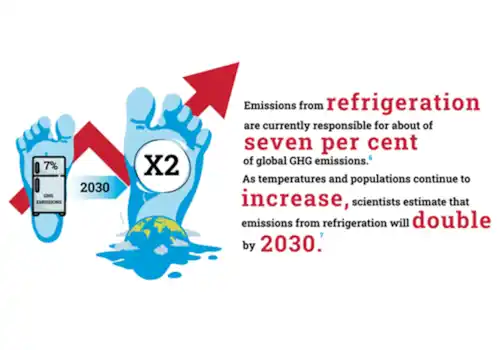10 June 2025
|
The Future Homes Standard (FHS) will be one of the most transformative policies for the UK's housing and energy future. It will ban gas boiler installations in new homes, sending the strongest signal yet that low-carbon heating is the new mainstream way to heat our nation's homes.
It's a pivotal moment for British heat pump manufacturers and installers like Kensa, which has been producing ground source heat pumps in Cornwall since 1999. Once implemented, the FHS will support the installation of more than 200,000 heat pumps each year, more than tripling the current heat pump market and unlocking the investment and economies of scale needed to reduce heat pump costs for everyone.
What the FHS will deliver
- The FHS will require all new homes to have low-carbon heating installed and the highest energy efficiency standards. This will reduce energy bills, reduce our reliance on imported fossil fuels, and cut emissions.
- It will triple the size of the heat pump market virtually overnight, from 100,000 to 300,000 a year. Confidence in this market growth will unlock investment in heat pump manufacturing and installation supply chains required for the wider decarbonisation of UK homes. Kensa's future investment in manufacturing capacity hinges on implementing the FHS.
- These economies of scale will drive down installation costs for both new builds and existing homes. Kensa is aiming to lower heat pump and installation costs and is preparing to increase output significantly over the next five years.
- Scaling up the heat pump market will create tens of thousands of skilled green British jobs, particularly in manufacturing, engineering, and its supply chain.
Cost of delay
A policy to end gas fossil fuel boilers in new build homes has been under discussion for nearly two decades. Each month without legislation locks in an estimated 11,000 homes to outdated heating that will ultimately need replacing, adding over £110 million in avoidable retrofit costs. Continued delay hurts the climate and homeowners.
This delay has also tempered the investment in British heat pump manufacturing. The UK should be an attractive place to invest, and it could have the largest heat pump market in Europe, as big as the French and German markets combined.
However, around two-thirds of UK heat pumps are imported, and around 80% of the government’s heat pump manufacturing fund remains unallocated. The interest is there, for example, Legal & General and Octopus invested £70m in Kensa, but constant policy delays have reduced confidence to invest in this promising, emerging market.
What are ground source heat pumps and how do they work for new homes?
- Ground source heat pumps are the most energy-efficient FHS-compliant heating systems available
- They use renewable, thermal energy stored in the earth to produce heating and hot water and can also provide cooling.
- Compact heat pumps are hidden within the house, usually inside a cupboard, with no need for an external unit.
The most effective and scalable way to deploy this technology is through networked heat pumps, where individual ground source heat pumps inside each property are connected to a shared underground network of boreholes and pipes. This is similar to other shared infrastructure, such as water, broadband and gas networks.
To deliver on the FHS, Kensa is rolling this out to thousands of new homes through its partnership with utility network provider GTC.
Tamsin Lishman, CEO of Kensa comments: “We welcome the announcement of the Future Homes Standard. This is the policy the UK’s heat pump sector has been waiting for and is a significant moment for the future of home heating. It marks the beginning of the end for our dependence on volatile international gas markets and sends a clear signal that affordable, home-grown, clean heating is ready to take over.
“It will create the foundation for a thriving homegrown clean heat sector, tripling the size of the current heat pump market with over 200,000 additional installations each year. This unlocks the economies of scale needed to drive down costs and reduce bills, all while supporting the goal of long-term energy independence and resilience.
“The Future Homes Standard, when published, will provide the confidence for British heat pumps manufacturers, like Kensa, to invest to expand manufacturing capacity and grow supply chains, creating thousands of creating thousands of skilled green jobs here in the UK.
“But let’s be clear, the clock is ticking, and today’s announcement still the lacks clarity and certainty to immediately unlock those major investments. We urgently need the final standards and have them legislated for. Equally, each additional month of delay results in an extra 11,000 homes fitted with fossil fuel heating, creating an estimated £110 million in avoidable retrofit costs.
“This legislation also changes how we think about clean heating. It creates more opportunities for ground source heat pumps and heat networks to play a critical role in home heating, with tens of thousands of new homes a year due to be fitted with the technologies.
“Working with UK utility provider GTC, we’re helping housebuilders navigate the new legislation and deliver for their customers, delivering the high performance of ground source at no greater cost than gas and without costly grid upgrades. Our British-designed and manufactured system future-proofs homes, supports energy security ambitions, delivering reliable, low-cost heating that meets both developers' and households' immediate and future needs.”
https://kensa.co.uk/








